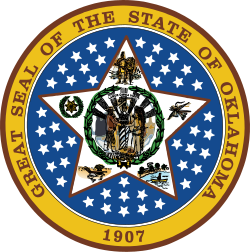| Senate Bill 1100 | |
|---|---|
 | |
| 58th Oklahoma Legislature | |
| |
| Territorial extent | |
| Passed by | Oklahoma Senate |
| Passed | 24 March 2022 |
| Passed by | Oklahoma House of Representatives |
| Passed | 21 April 2022 |
| Legislative history | |
| First chamber: Oklahoma Senate | |
| Introduced by | Micheal Bergstrom |
| Committee responsible | Health and Human Services |
| Passed | 24 March 2022 |
| Voting summary |
|
| Committee report | 28 February 2022 |
| Second chamber: Oklahoma House of Representatives | |
| Member(s) in charge | Sheila Dills |
| Committee responsible | Public Health |
| Passed | 21 April 2022 |
| Voting summary |
|
| Committee report | 6 April 2022 |
| Summary | |
| Bans non-binary markers on birth certificates | |
| Status: In force | |
Oklahoma Senate Bill 1100 (SB 1100) is a 2022 law in the state of Oklahoma which bans sex markers other than male or female on birth certificates. According to Lambda Legal, Oklahoma is the first US state to pass such a law. [1]